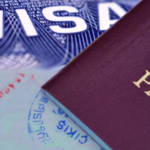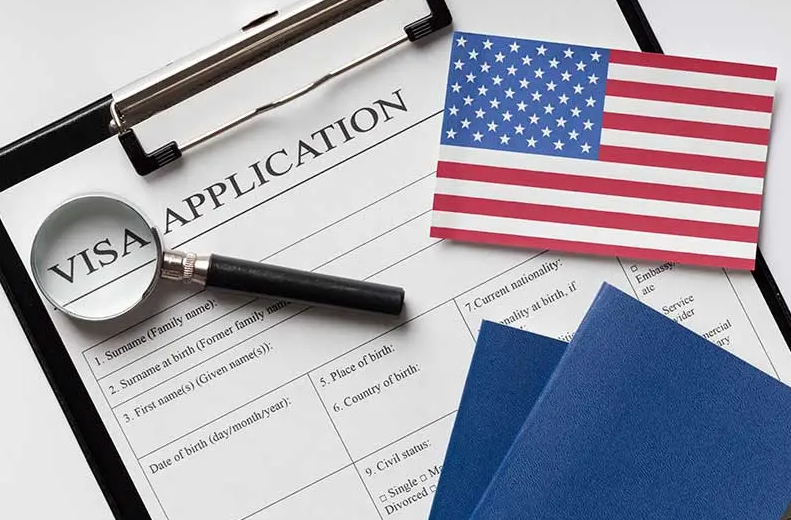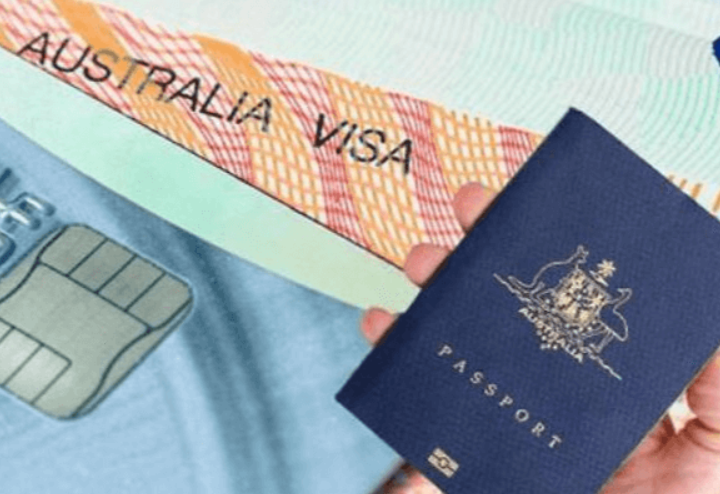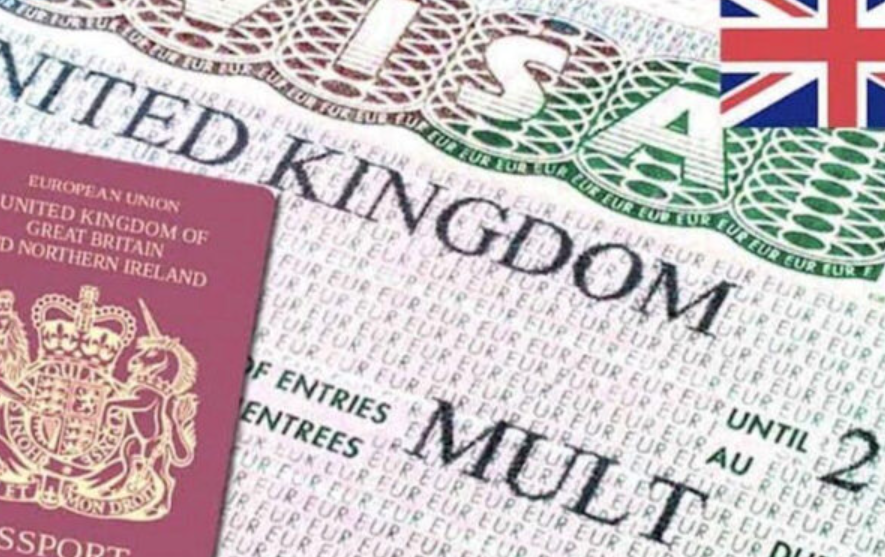Australia, with its stunning landscapes, vibrant cities, and world-class healthcare system, has become a beacon for healthcare professionals seeking a rewarding career and a high quality of life. But navigating the complexities of international recruitment and visa sponsorship can feel daunting. This comprehensive guide will illuminate the path to securing jobs for health workers in Australia with visa sponsorship opportunities, empowering you to turn your Australian dream into a reality.
For health workers across the globe, the prospect of securing jobs for health workers in Australia with visa sponsorship opportunities represents more than just a career move; it’s a transformative journey, a chance to weave their expertise into the fabric of a nation renowned for its progressive healthcare practices and unwavering commitment to quality of life. Yet, the path to realizing this dream often appears shrouded in a veil of intricate visa regulations, professional registration hurdles, and the daunting prospect of navigating a foreign job market.
This guide is not merely a roadmap; it’s a compass, a torchlight illuminating the intricate pathways to securing your place within the Australian healthcare landscape. We delve beyond the surface, offering a comprehensive and insightful exploration of the opportunities that await, demystifying the visa sponsorship process, and equipping you with the knowledge and strategies to transform your aspirations into tangible realities. Forget the generic advice and fleeting promises.
Why do Health Workers Choose Australia?
Beyond the promising jobs for health workers in Australia with visa sponsorship opportunities, what truly draws healthcare professionals to the land Down Under? It’s a confluence of professional growth, lifestyle enhancement, and a deep-seated appreciation for a system that values its healthcare workforce. Let’s delve into the compelling reasons that make Australia a top destination for health workers worldwide:
-
Professional Development and Recognition:
- World-Class Healthcare System: Australia boasts a highly regarded healthcare system, providing access to cutting-edge technology, advanced medical practices, and robust research opportunities. Health workers are eager to contribute to and learn from such a sophisticated environment.
- Emphasis on Continuing Education: Australian healthcare organizations prioritize professional development, offering ample opportunities for ongoing training, upskilling, and specialization. This commitment to growth is highly attractive to ambitious healthcare professionals.
- Respect and Recognition: Health workers in Australia are generally highly respected and valued for their contributions. This recognition translates into a positive work environment and a sense of professional fulfillment.
- Scope of Practice: For many professionals, Australia allows a greater scope of practice than their home countries. This allows for greater autonomy and the ability to more fully use their skills.
-
Quality of Life and Work-Life Balance:
- Attractive Salaries and Benefits: Australia offers competitive salaries and comprehensive benefits packages, including generous leave entitlements, superannuation (retirement savings), and health insurance. This financial security is a significant draw for many health workers.
- Strong Emphasis on Work-Life Balance: Australians value work-life balance, and this ethos is reflected in the healthcare sector. Reasonable working hours, flexible schedules, and generous leave policies allow health workers to maintain a healthy personal life.
- Safe and Stable Environment: Australia is known for its political stability, low crime rates, and high quality of life. This provides a sense of security and peace of mind for health workers and their families.
- Outdoor Lifestyle: With its stunning natural landscapes, beautiful beaches, and outdoor recreational opportunities, Australia offers a unique and fulfilling lifestyle. Health workers can enjoy a healthy and active lifestyle outside of work.
-
Multiculturalism and Welcoming Environment:
- Diverse and Inclusive Society: Australia is a multicultural nation, welcoming people from all over the world. Health workers from diverse backgrounds feel at home in this inclusive environment.
- Strong Community Support: Australian communities are known for their strong sense of community and support. Health workers often find a welcoming and supportive environment in their workplaces and neighborhoods.
- English-Speaking Country: For many health workers, the fact that English is the primary language makes the transition to living and working in Australia much smoother.
-
Pathway to Permanent Residency and Citizenship:
- Long-Term Security: The possibility of obtaining permanent residency and citizenship is a major draw for many health workers. This provides long-term security and the opportunity to build a future in Australia.
- Family Reunification: Australia’s immigration policies often allow for family reunification, enabling health workers to bring their families with them.
- Strong Social Safety Net: Australia’s strong social safety net, including access to public healthcare and education, provides peace of mind for health workers and their families.
-
Geographic Diversity and Opportunities:
- Urban and Rural Opportunities: Australia offers diverse opportunities in both urban and rural settings. This allows health workers to choose a location that best suits their lifestyle and career goals.
- Addressing Rural Healthcare Needs: Many health workers are drawn to the opportunity to make a real difference in rural and remote communities, where healthcare services are often in high demand.
- Varied Clinical Experiences: Australia’s geographically diverse population offers a wide variety of clinical experiences, increasing the professional growth of those who choose to live and work there.
Choosing Australia as a health worker is a decision that extends far beyond a simple job change. It is an investment in a rewarding career, a fulfilling lifestyle, and a future filled with opportunities. The combination of professional growth, personal well-being, and a welcoming society makes Australia an exceptionally attractive destination for healthcare professionals seeking a better life.
Understanding Visa Sponsorship for Australia
Embarking on a career as a health worker in Australia often hinges on navigating the intricacies of visa sponsorship. It’s not just a formality; it’s the gateway to a life-changing opportunity. Let’s dissect the complexities of Australian visa sponsorship, empowering you with the knowledge to pursue your healthcare ambitions Down Under.
-
The Foundation: Why Visa Sponsorship Exists
Australia’s skilled migration program aims to fill critical skill shortages within its workforce, particularly in sectors like healthcare. Visa sponsorship serves as a mechanism for employers to recruit qualified professionals from overseas when suitable candidates are unavailable locally. This system ensures that Australia maintains a high standard of healthcare delivery while addressing its growing demand.
-
Key Visa Categories for Health Workers:
Understanding the different visa categories is crucial for health workers seeking sponsorship. Here are the primary pathways:
Temporary Skill Shortage (TSS) Visa (subclass 482):
- This visa allows employers to sponsor skilled workers for temporary positions (up to four years, depending on the stream).
- It’s often a stepping stone to permanent residency.
- Requires employer sponsorship and a skills assessment (where applicable).
- Has specific occupation lists that dictate eligibility.
- There is short term, and medium-term streams.
Employer Nomination Scheme (ENS) Visa (subclass 186):
- This visa offers a pathway to permanent residency for skilled workers sponsored by their employers.
- Requires employer nomination and a skills assessment (where applicable).
- Demands a higher level of skill and experience compared to the TSS visa.
- Stronger English language requirements are often in place.
Skilled Nominated Visa (subclass 190):
- This is a permanent visa for skilled workers nominated by a state or territory government.
- Requires a skills assessment and an Expression of Interest (EOI) in SkillSelect.
- State/territory nomination is based on specific skill needs and regional priorities.
- Provides greater flexibility in terms of where you can live and work.
Skilled Work Regional (Provisional) Visa (subclass 491):
- This is a provisional visa for skilled workers nominated by a state or territory government or sponsored by an eligible family member in a designated regional area.
- It leads to permanent residency after meeting specific requirements, including living and working in a regional area for a specified period.
- Designed to address skill shortages in regional Australia.
-
The Employer’s Role: Sponsorship Obligations
Employers who sponsor overseas workers bear significant responsibilities:
- Demonstrating Genuine Need: Employers must prove that they cannot find suitable Australian candidates for the position.
- Meeting Sponsorship Obligations: Employers must comply with various sponsorship obligations, including providing fair wages and working conditions.
- Nominating the Worker: Employers must formally nominate the worker for the relevant visa.
- Paying Sponsorship Fees: Employers are responsible for paying visa sponsorship fees.
-
The Applicant’s Responsibilities: Skills, Language, and More
As an applicant, you must fulfill specific requirements to qualify for visa sponsorship:
- Skills Assessment: Many healthcare professions require a skills assessment from a designated assessing authority. This verifies your qualifications and experience.
- English Language Proficiency: You must demonstrate adequate English language skills through tests like IELTS or OET.
- Work Experience: Relevant work experience is crucial, and the required duration varies depending on the visa category and occupation.
- Health and Character Requirements: You must meet Australia’s health and character requirements, which include medical examinations and police checks.
- Registration: You must obtain professional registration with the relevant Australian board (e.g., NMBA, Medical Board of Australia).
-
The Skills Assessment: A Critical Hurdle
The skills assessment is a vital step in the visa sponsorship process. It involves:
- Verification of Qualifications: Assessing authorities compare your qualifications to Australian standards.
- Evaluation of Work Experience: Your work experience is evaluated against the requirements of your occupation.
- Documentation Requirements: You must provide comprehensive documentation to support your claims.
- Specific Assessing Authorities: Each healthcare profession has a designated assessing authority.
-
Navigating the Application Process: A Step-by-Step Approach
- Research and Planning: Thoroughly research visa requirements, assess your eligibility, and develop a plan.
- Skills Assessment: Obtain a positive skills assessment from the relevant authority.
- Expression of Interest (EOI): If applicable, submit an EOI in SkillSelect.
- Employer Sponsorship/State Nomination: Secure employer sponsorship or state/territory nomination.
- Visa Application: Lodge a complete visa application with the Department of Home Affairs.
- Registration: Obtain professional registration with the relevant Australian board.
-
Common Challenges and Solutions:
- Complex Requirements: The visa process can be complex. Seek professional advice from registered migration agents.
- Long Processing Times: Visa processing times can vary. Be patient and plan accordingly.
- Skills Assessment Delays: Gather all required documentation to avoid delays.
- Employer Sponsorship Difficulties: Network and utilize online job boards to find employers.
-
Staying Informed: Resources and Updates
- Department of Home Affairs Website: The official source for visa information.
- Professional Associations: Websites of professional associations provide valuable resources.
- Registered Migration Agents: Seek professional advice for personalized guidance.
Understanding visa sponsorship is paramount to your Australian healthcare journey. By meticulously navigating the requirements and seeking expert guidance, you can transform your aspirations into a reality.
Essential Requirement for the Jobs for Health Workers in Australia with Visa Sponsorship Opportunities
Landing a coveted health worker position in Australia with visa sponsorship is more than just a dream—it’s an achievable goal. However, it requires meticulous preparation and a thorough understanding of the essential requirements. Let’s break down the critical components that form the foundation of your Australian healthcare career.
-
Qualifications and Skills Assessment: Proving Your Professional Prowess
- Recognized Qualifications: Your qualifications must be recognized and equivalent to Australian standards. This often necessitates a formal assessment by relevant Australian assessing authorities.
- Skills Assessment: This is a crucial step for many healthcare professions. It involves a rigorous evaluation of your qualifications and work experience against Australian benchmarks.
- Each profession has a designated assessing authority (e.g., ANMAC for nurses, Medical Board of Australia for doctors).
- You’ll need to provide comprehensive documentation, including academic transcripts, professional registrations, and detailed work experience records.
- Specialized Skills: Highlight any specialized skills or experience that are in high demand in Australia. This could include expertise in specific medical fields, advanced clinical skills, or experience working in rural or remote areas.
-
English Language Proficiency: Communicating Effectively
- IELTS or OET: Demonstrating your English language proficiency is mandatory. The International English Language Testing System (IELTS) or the Occupational English Test (OET) are commonly accepted tests.
- Required Scores: You must achieve the minimum required scores in each section of the chosen test. These scores vary depending on the visa category and profession.
- Communication Skills in Healthcare: Beyond the test scores, strong communication skills are crucial for effective patient care and collaboration with colleagues.
-
Work Experience: Demonstrating Practical Expertise
- Relevant Experience: You must have relevant work experience in your field of expertise. The required duration varies depending on the visa category and occupation.
- Detailed Records: Provide detailed records of your work experience, including job descriptions, responsibilities, and achievements.
- Practical Skills: Emphasize practical skills and experience that are directly applicable to the Australian healthcare setting.
-
Professional Registration: Meeting Australian Standards
- Registration with Relevant Boards: You must obtain professional registration with the relevant Australian board to practice in your chosen field.
- For nurses and midwives, this is the Nursing and Midwifery Board of Australia (NMBA).
- For medical practitioners, this is the Medical Board of Australia.
- For other allied health professionals, it varies depending on the profession.
- Meeting Registration Requirements: Each board has specific registration requirements, including qualifications, experience, and English language proficiency.
-
Visa Requirements: Navigating the Immigration Process
- Visa Eligibility: Ensure you meet the eligibility requirements for the chosen visa category (e.g., TSS 482, ENS 186, 190, 491).
- Employer Sponsorship or State Nomination: Secure employer sponsorship or state/territory nomination, depending on the visa category.
- Health and Character Requirements: Meet Australia’s health and character requirements, which include medical examinations and police checks.
- Documentation: Provide all required documentation, including visa applications, skills assessments, English language test results, and work experience records.
-
Employer Requirements: Finding the Right Fit
- Genuine Need for Overseas Workers: Employers must demonstrate a genuine need for overseas workers and prove that they cannot find suitable Australian candidates.
- Sponsorship Obligations: Employers must comply with various sponsorship obligations, including providing fair wages and working conditions.
- Employer’s Reputation: Research potential employers and ensure they have a good reputation and a history of sponsoring overseas workers.
-
Personal Attributes: Beyond Technical Skills
- Adaptability and Cultural Sensitivity: Demonstrate adaptability and cultural sensitivity, as you’ll be working in a diverse and multicultural environment.
- Strong Work Ethic: Highlight your strong work ethic, commitment to patient care, and ability to work effectively in a team.
- Problem-Solving Skills: Showcase your problem-solving skills and ability to handle challenging situations.
Key Takeaways for Success:
- Thorough Preparation: Meticulous preparation is crucial for success. Gather all required documentation and ensure your qualifications and skills meet Australian standards.
- Professional Guidance: Consider seeking professional guidance from registered migration agents or healthcare recruitment agencies.
- Persistence and Patience: The process can be time-consuming, so remain persistent and patient throughout your journey.
- Accurate information: Always utilize the official department of home affairs website.
By meticulously addressing these essential requirements, you can significantly enhance your chances of securing a fulfilling career as a health worker in Australia.
Jobs for Health Workers in Australia with Visa Sponsorship Opportunities
The healthcare landscape in Australia is vast and varied, offering a plethora of opportunities for skilled health workers from around the globe. With a pressing need for qualified professionals, numerous roles come with visa sponsorship potential. Let’s explore some key areas and expand on the specific job opportunities:
-
Registered Nurse (RN)
Average Salary: $75,000 – $95,000 AUD per year.
Registered nurses form the backbone of Australia’s healthcare system, providing direct patient care across various settings, including hospitals, clinics, and aged care facilities. Their responsibilities encompass administering medications, monitoring patient conditions, performing medical procedures, and educating patients and their families. Australia’s aging population and healthcare expansion have created a high demand for skilled RNs, making them prime candidates for visa sponsorship. Specializations like critical care, mental health, and aged care are particularly sought after, offering diverse career pathways.
-
Medical Practitioner (General Practitioner – GP)
Average Salary: $150,000 – $300,000 AUD per year.
General practitioners play a crucial role in providing primary healthcare services to communities across Australia. Their responsibilities include diagnosing and treating illnesses, managing chronic conditions, and referring patients to specialists. The need for GPs is especially acute in rural and remote areas, where access to healthcare services is often limited. Visa sponsorship opportunities are frequently available for qualified GPs willing to work in these underserved regions. The high earning potential and the opportunity to make a significant impact on community health make this a very desirable position.
-
Physiotherapist
Average Salary: $70,000 – $90,000 AUD per year.
Physiotherapists help patients recover from injuries, illnesses, or disabilities through exercise, manual therapy, and education. Their expertise is essential in rehabilitation, pain management, and improving mobility. The demand for physiotherapists is growing due to increasing awareness of the benefits of physical therapy and the aging population. Opportunities exist in hospitals, private clinics, and sports rehabilitation centers. Visa sponsorship is often available for physiotherapists with specialized skills in areas like sports physiotherapy, neurological rehabilitation, or paediatrics.
-
Occupational Therapist (OT)
Average Salary: $70,000 – $90,000 AUD per year.
Occupational therapists assist individuals with physical, cognitive, or developmental disabilities to participate in everyday activities. They focus on improving independence and quality of life by adapting environments, providing assistive devices, and teaching coping strategies. OTs are in high demand in aged care, rehabilitation, and community health settings. Visa sponsorship is often offered to qualified OTs, especially those with experience in areas like mental health, paediatrics, or hand therapy.
-
Radiographer/Medical Imaging Technologist
Average Salary: $75,000 – $95,000 AUD per year.
Radiographers use imaging technology, such as X-rays, CT scans, and MRIs, to produce diagnostic images of patients. Their expertise is vital in diagnosing and treating a wide range of medical conditions. The demand for radiographers is driven by advancements in medical imaging technology and the growing need for diagnostic services. Visa sponsorship opportunities are available for skilled radiographers, particularly those with experience in specialized imaging techniques.
-
Sonographer
Average Salary: $80,000 – $100,000 AUD per year.
Sonographers use ultrasound equipment to create images of internal organs and tissues. Their expertise is crucial in prenatal care, diagnosing medical conditions, and guiding medical procedures. The demand for sonographers is increasing due to the growing use of ultrasound technology in various medical specialties. Visa sponsorship is often offered to qualified sonographers, especially those with experience in areas like obstetrics, gynaecology, or cardiac sonography.
-
Mental Health Nurse
Average Salary: $75,000 – $95,000 AUD per year.
Mental health nurses provide specialized care to individuals with mental health conditions. Their responsibilities include assessing patients, developing care plans, administering medications, and 1 providing counseling and support. The increasing prevalence of mental health issues has created a significant demand for mental health nurses in Australia. Visa sponsorship opportunities are available for qualified nurses with experience in this specialized field.
-
Midwife
Average Salary: $75,000 – $95,000 AUD per year.
Midwives provide care to women during pregnancy, labor, and postpartum. Their expertise is essential in ensuring safe and healthy childbirth. The demand for midwives is driven by the growing emphasis on women-centered care and the increasing birth rate. Visa sponsorship is often offered to qualified midwives, especially those with experience in areas like high-risk pregnancies or rural midwifery.
-
Aged Care Manager
Average Salary: $80,000 – $110,000 AUD per year.
Aged care managers oversee the operations of aged care facilities, ensuring the delivery of high-quality care to elderly residents. Their responsibilities include managing staff, developing care plans, and ensuring compliance with regulations. The aging population in Australia has created a growing demand for aged care managers. Visa sponsorship opportunities are available for qualified managers with experience in this sector.
By understanding the diverse range of opportunities and tailoring your skills to meet the specific requirements, you can significantly increase your chances of securing a fulfilling healthcare career in Australia.
Conclusion
Australia presents a compelling opportunity for health workers seeking career advancement and a fulfilling lifestyle. The nation’s robust healthcare system, coupled with a growing demand for skilled professionals, creates numerous jobs for health workers in Australia with visa sponsorship opportunities. By understanding the visa process, meeting essential requirements like skills assessments and English proficiency, and actively pursuing available positions, healthcare professionals can successfully embark on a rewarding journey, contributing to Australia’s healthcare sector while enriching their own lives.






